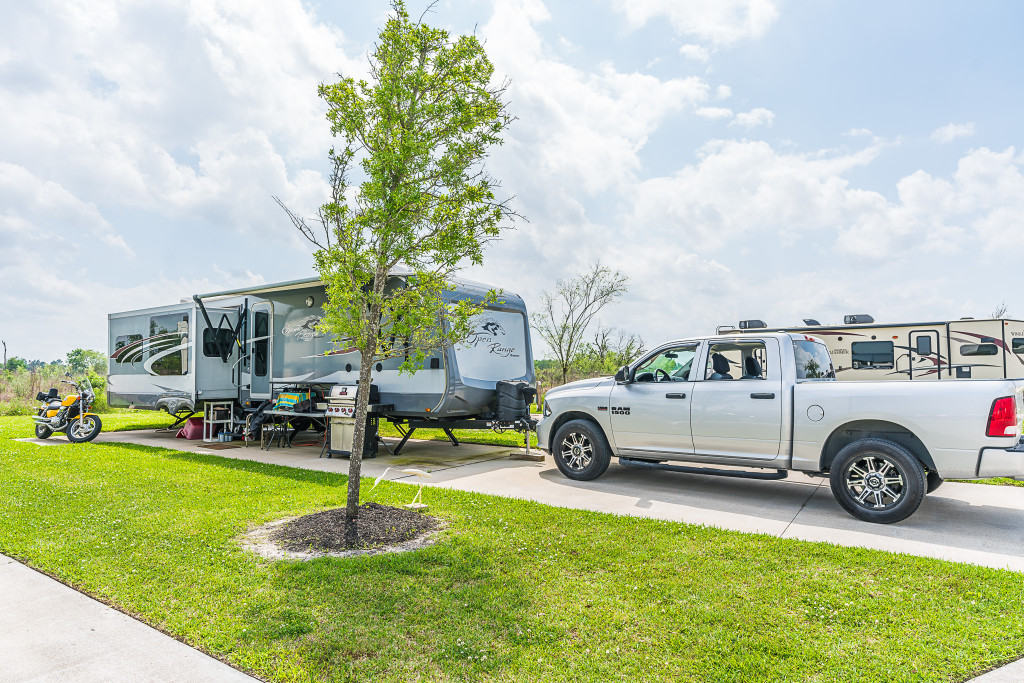How to Rent Your RV
The RV lifestyle is one that many people dream of, but not everyone is ready to make a full-time commitment. What if you could share your love for the open road and make a bit of extra income at the same time? This is where renting out your RV comes into play.
If you own an RV, this article will guide you through the ins and outs of renting out your RV, helping you turn your idle motorhome into a profitable venture.
Overview of How Renting Your RV Works
Renting out your RV is similar to renting out a room or property on a vacation rental site. Owners list their RVs on a rental platform, set their prices, and manage bookings and customer interactions. The rental platform typically takes a percentage of the rental fee for its services. In this way, renters get to enjoy the perks of RV life without the significant financial commitment of owning one.
Here are the most trusted RV rental platforms in the U.S.:
Outdoorsy: A peer-to-peer RV rental platform, Outdoorsy connects RV owners with individuals looking to rent for short-term trips. They offer a range of vehicles, including campervans, motorhomes, and luxury RVs.
RVshare: Similar to Outdoorsy, RVshare is another peer-to-peer marketplace that enables RV owners to rent their vehicles to vacation-goers. Its diverse selection includes everything from affordable travel trailers to high-end motorhomes.
Using these services, RV owners can earn passive income while their RV is not in use. It’s an opportunity to monetize an asset that would otherwise be sitting idle. Some owners even use this as a means to offset the costs of owning and maintaining their RV.
How to Rent Your RV
To start, you need to select an RV rental platform. Each has its own set of rules and policies. Once you’ve chosen a platform, you’ll need to create a profile, list your RV, set rental prices, and establish your availability. High-quality photos and a detailed description of your RV can help attract potential renters.
Next, it’s crucial to have a clear and concise rental agreement in place. This document should outline the terms and conditions of the rental, including any fees for damages incurred during the rental period. You should also check with your insurance company to confirm what kind of coverage is offered when renting out your RV.
Start off by setting up your listing. A catchy description, up-to-date photos, and a comprehensive list of your RV’s features and amenities will make it irresistible to potential renters. And don’t forget to decide on your rental price and duration – this will help your renters find the perfect RV match in you!
Accept new bookings. Now that you’ve got some interested renters, it’s time to manage your bookings. This is your chance to fine-tune the details with them – like pick-up and drop-off times, payment methods, and insurance coverage.
Once the big day arrives and it’s time for your renters to take charge of your RV, make sure they know their way around it. Give them a warm walk-through and ensure they’re familiar with all the functionalities.
Earn cash. After your renters have completed their trip in your RV, it’s time to celebrate – because you’re getting paid! Most RV rental companies will have your earnings in your account within a few days of the rental period ending.
RV Rental Pros and Cons
Renting your RV can provide a steady stream of income and may also cover the costs associated with the upkeep of your vehicle. It allows other people the chance to experience the joys of RVing without the financial burden of owning one. This can be particularly beneficial in peak travel seasons when demand for RVs is high.
However, there are potential downsides. Renting your RV out to strangers can cause wear and tear. There’s also the risk of renters causing accidental damage, even though platforms such as RVShare and Outdoorsy allow for these hiccups via insurance premiums. Furthermore, there might be periods of low demand, affecting your potential earnings. It’s essential to weigh these pros and cons before deciding to rent out your RV.
Frequently Asked Questions
One common question is, “How much can I earn from renting my RV?” The answer depends on several factors, including the type and age of your RV, its condition, and your location. Pricing can also fluctuate based on the season and demand.
Another frequently asked question is, “What if my RV gets damaged?” Most rental platforms offer insurance options to cover potential damages. Furthermore, a comprehensive rental agreement can help protect you as the owner, ensuring that renters are held accountable for any damages that occur during their rental period.
Renting your RV can be a profitable venture and a great way to share the joy of RV life with others. It’s essential to understand the process, weigh the pros and cons, and equip yourself with knowledge to make an informed decision.


